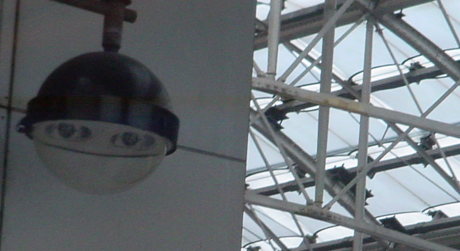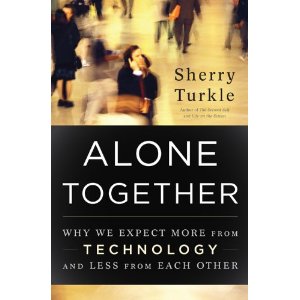I’m doing something thinking about what lies ahead with some people that run shopping malls in South Africa and I’ve been trawling around for information on ‘retail futures’. Below is an edited version of some thinking done by Forum for the Future looking ahead at what lies in store for shoppers and retail groups in the UK in 2022 (written in late 2007, so one assumes influenced by the UK economic situation at the time).
Scenario 1 – Do it yourself
“Individualistic, optimistic society where technology is held in very high regard. Local government has become stronger. The economy is dynamic and entrepreneurial. Brands are less powerful.The oil price is $40 a barrel and congestion is still a huge problem, but air freight has become unacceptable. The big four supermarkets account for just 55% of the market, compared to 76% now and a quarter of consumer spending is online, up from 3% now.
Multi-storey car parks and old warehouses are converted to “vertical farms’ where consumers live. Consumers measure their energy use and carbon emissions by the minute. Solar chargers are built into clothing to power wireless electronic gadgets. Networks of individuals trade directly with one another. Smart packaging refrigerates food using a tiny in-built fuel cell which charges on the shelf and runs down when the food becomes unsafe to eat. The 2022 high street: Power shifts away from big retailers to individual producers who trade direct with shoppers and are more trusted.
The big UK chains are increasingly trading under local brand names and internet trading enables direct-from producer shopping.”
My comment
If the economy is booming why is the oil price only $40? It would be far higher and this would have knock-on effects. Also, why are the supermarkets and brands weaker? As for vertical farms, smart packaging with built-in fuel cells and solar chargers being built into everything this is all possible but not by 2022 in my view.
Scenario 2 – Do it for me
“The economy is buoyant and confidence high. Shoppers want service and are happy for big business to meet their demands while they enjoy their leisure time. Oil is $80 a barrel, the big four supermarkets have 85% of the food market. Consumer can order made to measure products – soap with a specific scent, muesli made to their own recipe.
One-stop “market villages” emerge, offering branded stores and services – like Boots GP surgeries and shampoo-branded hair salons. Biogas patio heaters turn household waste into outdoor warmth. Supermarkets become “diet managers”, using information they have on household income, health, age, preferences to deliver the right foods and daily menus. They know exactly what is in your fridge and can send replacements when necessary.
The big retailers have become more powerful, but branded agricultural groups also sell direct. Store groups have become bigger and merged with farms and food producers to create a “corporate rural society”. Marketing focuses on building trust in brands rather than pushing products.”
My comment
This scenario seems quite reasonable and certainly possible by 2022.
Scenario 3 – Going greener
“The economy is subdued and uncertain and fears about climate change has increased. Consumers are wary of corporations and government. The debt crisis persists and baby-boomer pensioners are living on low incomes. Consumers are less willing to pay for luxury or convenience.Oil is $120 a barrel and the big four supermarket chains have captured 65% of the market. New products and services include community food clubs, sourcing from allotments, market gardens and local farms. Local councils run campaigns similar to WW2’s “Dig for Victory”. Consumers own shares in local farms; peer-to-peer mortgage lending; Google maps allow shoppers to buy food from the most local source.
On the 2022 high streets, local produce is viewed as best and UK agriculture is booming. The high streets are struggling as goods exchanges are set up, real and online, for swapping products. Mass marketing is almost extinct.Advertising has gone local and word of mouth through social network websites.”
My Comment.
Again quite possible and interesting to note that this was written in 2007. Feels a bit like now in the UK on some levels. Not sure why mass-marketing would be extinct though (OK, the trend is real enough and I get why, but I don’t think it will happen to the extent that some people imagine).
Scenario 4 – Harder times
“Consumer confidence is low and people look to government and big business for security and solutions. Business focuses on efficiency and low-cost options. Environmental behaviour has been changed by sweeping legislation. The oil price is $140 a barrel, road use is regulated by pricing. Now the big four supermarket chains account for 90% of food spending.Among new products and services that retailers provide is a cradle-to-grave service, offering everything from food to energy, water supplies, pensions, healthcare, holidays, education and funerals.
All domestic equipment is leased and replaced regularly by retail groups. Prescribed medicines are embedded in food and clothing. Benefits claimants pick up cash in stores and get discounts on their shopping. Tesco villages – affordable, quality eco-friendly homes and communities with all family needs on their doorstep. On the 2022 high street small organisations find it difficult to survive and companies are vertically integrated. Small high streets are doomed. Big retailers run showrooms, where shoppers only browse. All purchasing is through the internet. The big retailers may also run compulsory loyalty schemes, but are heavily regulated.”
My comment
All quite sensible apart from the compulsory loyalty schemes”. Good luck with that.
Sources:
‘The future of shopping: multi-storey market gardens and talking fridges’ by J. Finch (The Guardian, 8 September 2007 ).
Retail Futures: Scenarios for the future of UK retail and sustainable development (September 2007), Forum for the Future (UK) www.forumforthefuture.org
http://www.forumforthefuture.org/projects/retail-futures-2022



